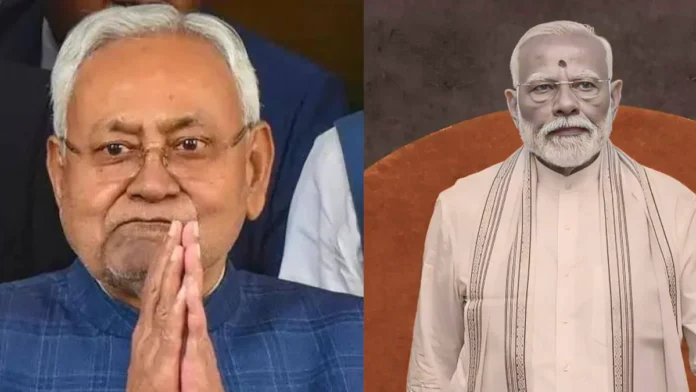In a significant political development, the Central government has declined Bihar’s long-standing demand for special status, dealing a major blow to Chief Minister Nitish Kumar’s Janata Dal (United) [JD(U)], a key ally in the National Democratic Alliance (NDA). This decision comes amid the JD(U)’s persistent advocacy for special status to accelerate the state’s development.
Centre’s Decision Based on 2012 Report
On Monday, the Narendra Modi-led NDA government, in a written response to Jhanjharpur Lok Sabha MP Ramprit Mandal, clarified that special status for Bihar is not feasible as per the criteria established by the Inter-Ministerial Group (IMG) report of 2012. Union Minister of State for Finance Pankaj Chaudhary explained the rationale behind this decision.
Criteria for Special Status
“The Special Category Status for plan assistance was previously granted by the National Development Council (NDC) to states characterized by specific features,” Chaudhary stated. These features include:
- Hilly and difficult terrain
- Low population density and/or a significant tribal population
- Strategic location along international borders
- Economic and infrastructural backwardness
- Non-viable state finances
The IMG’s report from March 30, 2012, concluded that Bihar does not meet the NDC criteria for special status, despite its unique challenges.
JD(U)’s Persistent Demand
The JD(U), which holds 12 seats in the Lok Sabha, has been a vocal advocate for Bihar’s special status. The party reiterated its demand during an all-party meeting on Sunday, just before the Parliament session. The rejection from the Centre is seen as a setback for the JD(U) and its development agenda for Bihar.
Political Implications
This decision has significant political implications, especially given the BJP’s reliance on the JD(U) and the Telugu Desam Party (TDP) for maintaining its majority in the Lok Sabha. The BJP secured 240 seats in the last general elections, short of the 272 needed for an outright majority, making the support of its allies crucial.
Other States’ Demands
The issue of special status is not confined to Bihar alone. The Chandrababu Naidu-led TDP has also been demanding special status for Andhra Pradesh since its bifurcation in 2014, which resulted in the creation of Telangana. The Centre’s decision on Bihar could influence the demands and expectations of other states seeking similar status.
Conclusion
The Centre’s refusal to grant special status to Bihar underscores the complexity and stringent criteria involved in such decisions. While the JD(U) faces a significant political challenge, the broader implications for regional development and coalition politics continue to unfold.
Key Points at a Glance
| Criteria for Special Status | Details |
|---|---|
| Hilly and difficult terrain | Not applicable to Bihar |
| Low population density and/or significant tribal population | Not applicable to Bihar |
| Strategic location along international borders | Not applicable to Bihar |
| Economic and infrastructural backwardness | Present in Bihar but not sufficient for special status |
| Non-viable state finances | Present in Bihar but not sufficient for special status |
The debate over special status remains a critical issue for Bihar and other states seeking enhanced support for development.
